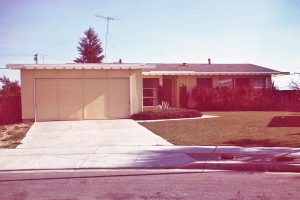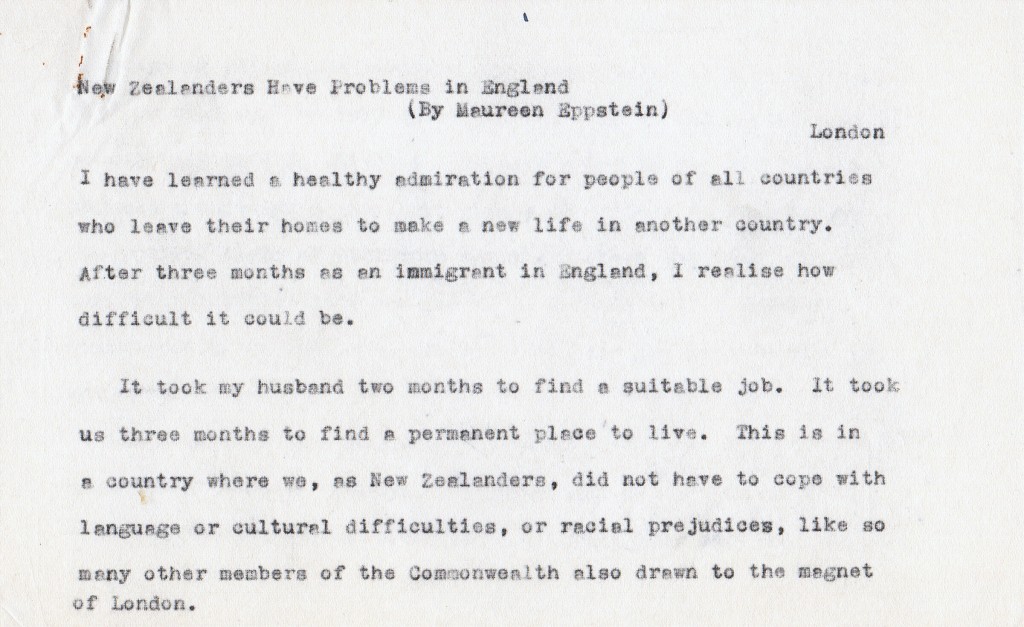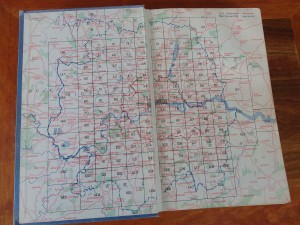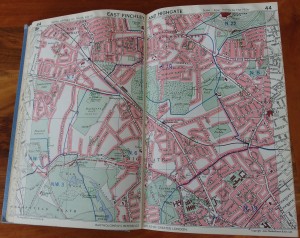Posts Tagged ‘housing’
The appeal of the picturesque
I’ve been wondering: what is it about an old house or barn that appeals so much that we describe the scene as “picturesque.” The question came up as I reread a January 1970 letter to my parents describing the purchase of a house in Cupertino, CA. Our new home was a typical early 1960s tract house with scalloped trim and prominent garage. The place was certainly not picturesque, but it was within our price range. I wrote:
It’s a very nice little house – 3 bedrooms, 2 bathrooms, big sitting room with dining area at one end, small family room opening to a neat little kitchen, 2-car garage with laundry facilities in it. Very attractive inside, though not very prepossessing from the outside. However, this is just a matter of landscaping – other houses in the street are just lovely, but the garden of this one is just bare grass.
Looking back on that time, what comes most vividly to mind is another house I saw while house-hunting, a charming old farmhouse dating from the time when the Santa Clara Valley was so full of orchards it was called “The Valley of Heart’s Delight.” As I walked through with the realtor, I paused in what must have been a utility porch and mud room. The unfinished walls of the room were black with mold. The realtor shrugged when I pointed it out. The price was right, but I chose not to make an offer.
There’s a significant difference, of course, between the picturesque, which has been defined as that kind of beauty which is agreeable in a picture and a habitable structure for humans. But what is it in the human psyche that is drawn to the antique? Rummaging around on the web, I found quotes such as:
(esp. of a place) attractive in appearance, especially in an old-fashioned way
A picturesque place is attractive and interesting, and has no ugly modern buildings.
My friend Sandy Peters says it well. Commenting on a Portola Art Gallery exhibition of her husband Jerry Peters’ paintings of old battered trucks in rural settings, she wrote: They demonstrate how the beauty of nature blends seamlessly with the wisdom of age.
However, with age comes death. When we first moved to Mendocino seventeen years ago, a cabin stood among the trees along Highway 128, not far north of Yorkville. Its bare board were gray with age, the sway-backed roof shingles covered with moss. Over the years, the roof has slowly caved in, until now the cabin is a jumbled pile of boards. At first it was picturesque. Now when I drive by, I am sad.
A roof and a meal in 1968 dollars
While rereading letters dated early 1968 from California to my New Zealand parents, I discovered a conversation about the cost of housing and the cost of living generally. If you’ve seen the current astronomical real estate prices in the San Francisco Bay Area you will be mind-boggled at the numbers. For that matter, housing prices have also risen dramatically in New Zealand cities. (To take inflation into account, multiply the US 1968 numbers by 7.2)
The conversation started with mention that friends in the apartment complex where we lived had bought a house.
2 Jan. 1968
On Sunday we spent the afternoon at the J___s’ new house – they have managed to acquire a lovely rural acre running down to a creek – we are very envious.
26 Jan. 1968
You asked about the price of housing. Well, the J___s got theirs extremely cheaply, because of some easements on the property – power lines restrict building on one corner, and a road may possibly go down the side of it. Normally such a place would go for between $45,000 and $50,000 – they got it for under $35,000. Housing is generally pretty expensive here. If you want a genuine or potential slum you only have to pay about $18,000, but the vast majority of ordinary middle class suburban houses – about equivalent to the typical NZ suburban house – come in the range $22,000 to $28,000. New houses in this area, that is, the west side of the [Santa Clara] valley, are all $35,000 and up. Down payment is between 10%–25%. Which puts us out of the housing market for some time.
Just for comparison, what would an equivalent house in NZ cost now? The outer suburbs of Auckland or Wellington, for instance. It would also be interesting to compare costs of living – could you find out for me how much it would cost per week to keep house for a family like ours, for instance?
27 Feb. 1968
Thank you for the list of prices etc. Costs certainly seem to be fairly high. Your power bill is about the same as ours, and so is the telephone. Houses in NZ seem to be about half our price, but rents considerably lower – we are paying $160 a month, or $40 a week, and this is pretty reasonable for this area. To get a house we would have to pay $225 or more.
Your food bill is certainly much cheaper than mine. I have $40 a week for housekeeping, of which about $20 goes on groceries, $4 on fruit and vegetables, $5 on meat (and this is pretty frugal – we practically never eat steak, for instance. In fact, our standard of living hasn’t changed much from what it was in England.) The rest goes on miscellaneous sundries – sewing notions [I sewed all my own and the children’s clothes], postage, haircuts – at $3 a go for an ordinary cut it’s just well I don’t go in for sets, perms, etc., and the boys’ hair I cut myself.
…This seems to be turning into a grouch about costs, which is not really fair, as salary levels are comparably higher. At present we are managing to save about 10% of Tony’s salary, which is better than we have ever done.
Those new houses in Cupertino that in 1968 were selling for $35,000 are now listed at over $2,000,000. That’s eight times the inflation rate. Economists might say that’s the law of supply and demand.
Droplets in an immigrant wave
In a 1962 article I wrote for my old paper, the Christchurch (NZ) Press, a draft of which I found in my old black filing cabinet, I wrote:
I have learned a healthy admiration for people of all countries who leave their homes to make a new life in another country. After three months as an immigrant in England, I realize how difficult it could be.
It took my husband two months to find a suitable job. It took us three months to find a permanent place to live. This is in a country where we, as New Zealanders, did not have to cope with language or cultural difficulties, or racial prejudice, like so many other members of the Commonwealth also drawn to the magnet of London.
We had no idea at the time of the hugeness of the immigration wave in which we floundered. To aid in post-war reconstruction in the 1950s, Britain had recruited labor from its colonies, primarily the West Indies and the Indian sub-continent. At that time people from the Empire and Commonwealth had unhindered rights to enter Britain. However, by the late 1950s, with the British economy faltering, racial prejudice reared its violent head. The Conservative Party government proposed legislation to make immigration for non-white people harder. One aspect of the proposed bill was to deny entry to dependents of immigrant workers. Before the Commonwealth Immigrants Act of 1962 could go into effect, the entry of dependents into Britain increased almost threefold as families attempted to beat the deadline. Total immigration from what was known as the New Commonwealth swelled from 21,550 in 1959 to 58,300 in 1960 and a record 125,000 in 1961.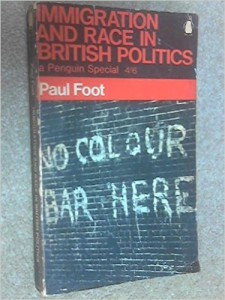
Statistics are from Paul Foot, Immigration and Race in British Politics (Penguin, 1965)
All these people needed somewhere to live. It is no wonder then that rents soared and accommodations of any sort were snapped up. While Tony job-hunted, I haunted rental agencies for a short-term apartment (or flat, as they’re called in England) and, the hefty Bartholomews Atlas of Greater London under my arm, braved the Underground and navigated the suburbs. My letters to parents are full of observations like this one:
It’s amazing how so many of the little villages that have been absorbed into the city still retain their village atmosphere – you pop up from an Underground station and could imagine yourself miles out in the country – unless you happen to be on a bit of a rise, when you see nothing but houses as far as the eye can see. One place I visited, for instance, Muswell Hill, you had to go by bus through a very extensive patch of woodland to get to it. That place I didn’t take, incidentally, because the bath was in the kitchen – covered by a lift-up board and a little frilly curtain. When I mentioned this to another English landlady she didn’t even raise an eyebrow.
My letter continues:
We have now moved out of our hotel into a bedsitter out at Hampstead, for which we are being grossly overcharged – I guess we just took it in a moment of desperation.
The rent was six and a half guineas a week (the same buying power as about $200 in current U.S. dollars.) Every piece of furniture was shaky about the legs, and the cooking facilities were two gas rings crammed into a cupboard with about six inches of counter surface. The shared bathroom was down the shabby hall. I described the landlady as
a bit of a social type – she was too busy preparing for her cocktail party last night to attend to our wants, which brassed me off considerably. Still we get on quite well with her little dog, so with a little careful handling relations might improve.
Relations did not improve. Still vivid in my mind is one of our shouting matches. I had returned from the local laundrette with clothes still damp, in spite of multiple coin feeds to the drier, and had strung clothesline around the room. In walked Mrs. Ashley-Davis. “My furniture! My furniture!” she wailed, hand to her heart. Other disputes must have followed. In a letter to parents dated May 25, after giving the news that Tony had accepted a job near Windsor, I mention that we have given notice
…after some somewhat violent disputes with the landlady, in which I managed to lose my temper – catastrophe!
Finding permanent housing proved even more frustrating. I told my parents:
…for the last three or four days we have been footslogging, railriding, bussing, and generally getting fed up in a wide arc around the area…
We moved out to a hotel near Tony’s new job. My letters for the next few weeks are full of the false hopes and discouragements of the search. Finally we got lucky: a second floor flat in a Victorian brick semi-detached house just down the hill from Windsor Castle. A roof over our heads at last!
Here’s a modern Google Maps street view of the neighborhood. It still looks much the same.
